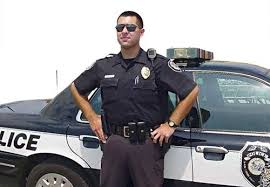记忆方法
1、cap- => cop.
中文词源
cop 警察
来自词根cap, 抓,握,词源同capture, captive.
英语词源
- cop (v.)
- 1704, northern British dialect, "to seize, to catch," perhaps ultimately from Middle French caper "seize, to take," from Latin capere "to take" (see capable); or from Dutch kapen "to take," from Old Frisian capia "to buy," which is related to Old English ceapian (see cheap). Related: Copped; copping.
- cop (n.)
- "policeman," 1859, abbreviation of earlier copper (n.2), 1846, from cop (v.).
权威例句
- 1. Malone, a cop, felt as much an outsider as any of them.
- 马隆是个警察,他跟他们一样都觉得自己像个外人。
- 2. To decline to vote is a cop-out.
- 拒绝投票就是一种逃避。
- 3. The film's ending is an unsatisfactory cop-out.
- 电影回避式的结局让人不满。
- 4. Not turning up was just a cop-out.
- 不露面只不过是在逃避而已。
- 5. The cop told him to button his lip.
- 警察叫他闭嘴.
